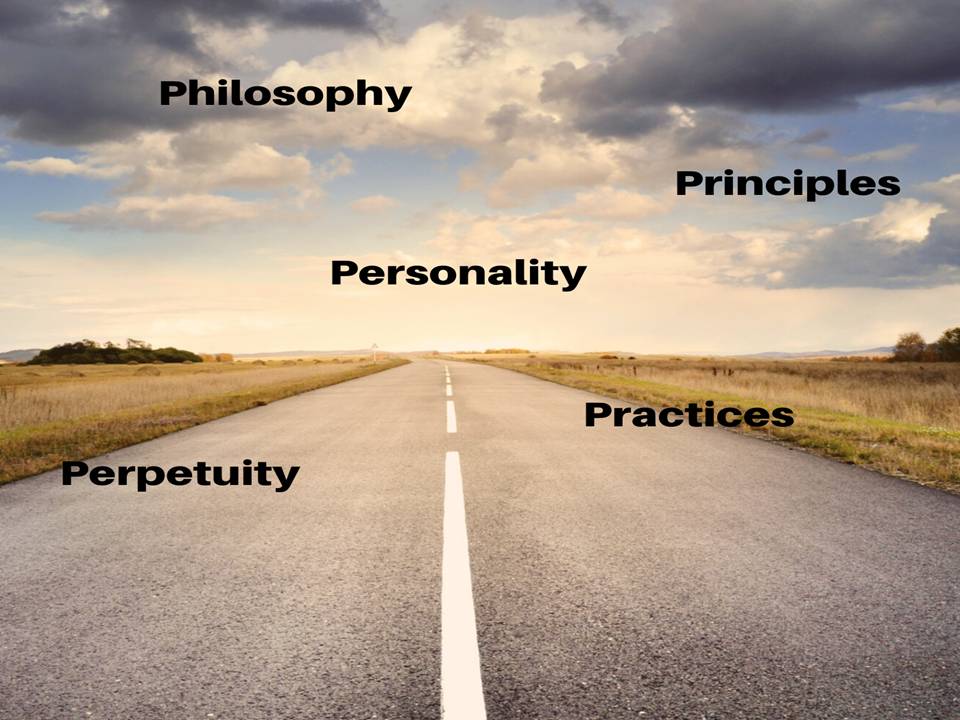by Peter A. Arthur-Smith, Leadership Solutions, Inc.®
“If your actions inspired others to dream more, learn more, do and become more, you were a leader.” John Quincy Adams

For those organizations that are savvy enough to pursue philosophies like Enlightened Leadership or something similar, they are likely to become concerned about perpetuating their special edge. This will be particularly true when their current leaders are contemplating retirement. Beyond that, despite the incredible results such entities experience and the accolades they reap from their own people, there’s the constant gnawing of the skeptics, the somewhat indifferent response from Wall Street, and the ever present “do as we do” comparison by conventional enterprises – then they don’t have to change. To bring perpetuity to their special culture is therefore a regular challenge for enlightened organizations.
You cannot blame these enlightened leadership teams from feeling this way, since making the shift took time and was tough at certain moments: not because the enlightened flame grew dim but because ‘old habits die hard’ as the saying goes. You’ll have the early adopters within your organization, then come those that sit on the fence, and then there are those who have no intention of jumping aboard because they’re stuck in time. It takes a while for the right events to swing the fence-sitters over and then that just leaves the nay-sayers to be weeded out in due course.
As these incredibly successful organizations grow over time, they have the challenge of hiring people infected by predominantly command-and-control cultures. They’ve been impacted by: ‘don’t move until you’re told to do so,’ ‘keep your heads down,’ ‘don’t work smart, work hard,’ ‘you’re just a pair of hands,’ ‘ask permission before you proceed with any initiatives,’ ‘don’t spend much time at the water-cooler,’ ‘don’t proceed unless we can make a quick buck now,’ and so on. Such people have to be turned around before they can expose their true talents in your enlightened environment.
Nevertheless, once you have a people-engaged culture flourishing, it’s important to have regular leadership forums at all levels to sustain its impact. Your leaders at every level should be exposed to the five Ps, such as: Personality, Philosophy, Principles, Practices and Perpetuity. These can be articulated as follows:
» Personality – Do they have the right personality to lead within your organization? Are they interested in a people-engaged culture? Can they produce a compelling vision for their team? Will they treat people with respect? And so on.
» Philosophy – Do you all care about people more than numbers? Are you all more interested in building lives rather than empires? Do you all believe in giving people due recognition and celebrating their successes? Are you more interested in laying out compelling organization journeys and milestones rather than fixating on financial goals? And so forth.
» Principles – Do you all consider your people’s desires first? Have you declared a magnetic purpose? Will you all ensure that every enterprise member is thoroughly educated within their domain? Do you all intend to promote team camaraderie? Will you all give your people a real opportunity to succeed?
» Practices – Do you all make work fun? Do you all celebrate successes regularly? Do you all listen intently? Do you all keep your promises and commitments? Do you all talk-straight with your people? Do you all practice two-way communication rather than one-way? And many more.
» Perpetuity – Are you placing more emphasis on Enlightened Leadership (EL) and its people outcomes, more so than Conventional Management (CM) and its pure numbers? Do you regularly celebrate leadership successes? Do you reinforce the benefits of teams, hubs, pods and clusters?
Forums to review and discuss the above five factors should be held at least twice a year or more, especially to take into account the current realities of your organization. Such ‘discovery’ sessions should be at least for a couple of hours or half a day. Mornings tend to work best for most people and if the session can be concluded with lunch, you will ensure that it ends on a convivial note and gives participants an opportunity to share their understandings while topics are fresh.
One of the hallmarks that will reinforce this regular education is the nomination of enthusiastic ‘pairs’ as session leaders to provide genuine two-way participation. Just having ‘sages on the stage’ is the quickest way to cause people’s minds to shut down. Now you will begin to reap the rewards of leadership forums and get them to fully comprehend “What leadership is?” Your payback will be significant over time.
To learn more about leadership forums, talk with:
